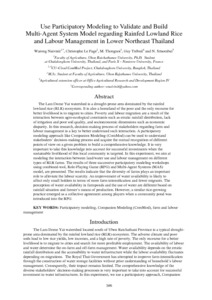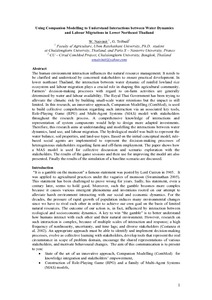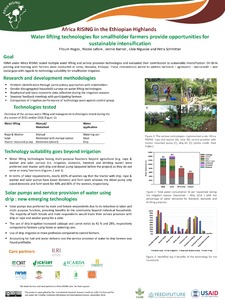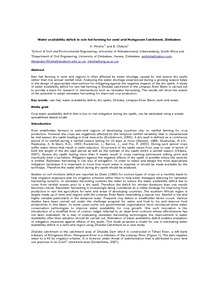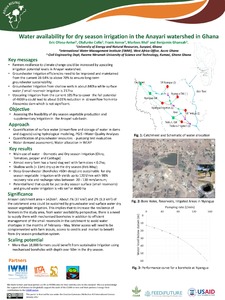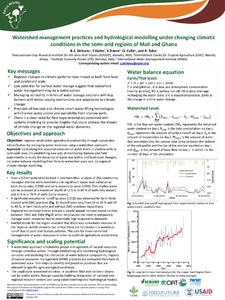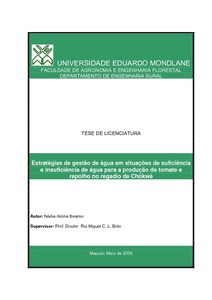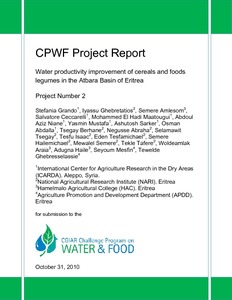Using companion modeling to understand interactions between water dynamics and labor migrations in lower northeast Thailand
Water and nitrogen management for risk mitigation in semi-arid cropping systems
Water availability deficit in rain fed farming for semi arid Mzingwane Catchment Zimbabwe
Water availability deficit in rainfed farming for semiarid Mzingwane Catchment Zimbabwe
Water availability for dry season irrigation in the Anayari watershed in Ghana
Water harvesting and supplemental irrigation for improved water use efficiency in dry areas
This paper aims to describe the state of theart of both water harvesting (WH) andsupplemental irrigation (SI) techniques in the temperate and sub-tropical dry lands, especiallyin the countries of WANA that are characterized by a Mediterranean-type climate. In addition,three case studies of water harvesting are presented (see annex). These were selected from the case studies presented at the FAO Expert Consultation Cairo (1994). By sharing with us the success and the failure of these endeavors, the authors of the case studies illustrate many of the points that are made in the text.
Watershed management practices and hydrological modelling under changing climatic conditions in the semi-arid regions of Mali and Ghana
Water management strategies under sufficiency and insufficiency water conditions for tomato and round cabbage production in the Chókwè Irrigation Scheme
Water productivity improvement of cereals and foods legumes in the Atbara Basin of Eritrea
The project ‘Water Productivity Improvement of Cereals and Food Legumes in the Atbara Basin of Eritrea’ is an example of organization and implementation of farmers’ participatory research, conducted utilizing the available indigenous knowledge while empowering farming communities. Farmers have been partners in technology development with extension and research, with full decision-making power in planning, implementation, monitoring, and evaluation.

